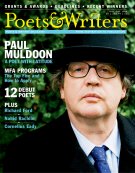When fiction writer Barry Eisler heard last summer that Kepler's Books in Menlo Park, California, would close after fifty years in business, his first reaction was a loud expletive. His second was an e-mail to owner Clark Kepler with an offer to help. "I used to see those big author photos in the window…and I was working on what would become my first novel," says Eisler, the author of the Jain Rain series of thrillers. "My fantasies of literary success were all based on doing book signings at Kepler's."
Faced with increased overhead, diversified retail competition, and a dwindling reading population, venerable booksellers once thought invincible are changing locations, downsizing, or closing altogether.
Eisler was part of a cadre of Bay Area authors who offered to give benefit readings and drive as much business as they could to the bookstore. Their efforts, combined with an alarmed customer base and a group of Silicon Valley investors, helped Kepler's reopen to cheering crowds last October.
Kepler, whose father Roy founded the store in the spring of 1955, expressed both delight and gratitude for the community's generosity, but warned that Kepler's future was far from secure. "I think we were like frogs in hot water," he says. "The old way of buying books, putting them on shelves, and waiting for someone to come in isn't working anymore."
What will? Faced with increased overhead, diversified retail competition, and a dwindling reading population, venerable booksellers once thought invincible are changing locations (Denver's Tattered Cover), downsizing (Cody's in Berkeley, California, which was sold in September to Yohan Inc., a book distributor based in Tokyo), or closing altogether (San Francisco's A Clean Well-Lighted Place for Books). And while the American Booksellers Association (ABA) reports that its membership has held steady over the last few years, dramatic rescues like those of Kepler's and Brazos Books in Houston, which owner Karl Kilian sold to a group of community investors in March, are becoming increasingly visible.
"When you run an independent bookstore, someone inevitably starts a conversation: 'How do you compete? How do you stay in business?' As if things weren't bad enough with the chains, now you've got Amazon," says Kilian from his new post as director of programs for the Menil Collection, a Houston art museum. Several years ago Kilian wrote a letter to friends and patrons of Brazos warning that the store might be in trouble. Rick Bass, Richard Ford, Susan Sontag, and other authors each wrote back with an offer to give benefit readings. While it turned out not to be necessary, Kilian says that Brazos's reputation for first-rate author events was a significant part of what made the store's potential closing "a loss the community would not tolerate."
One of the less fortunate independent bookstores was Bristol Books in Wilmington, North Carolina, which hosted many readings by students attending the University of North Carolina in nearby Chapel Hill. Bristol Books closed last year after fifteen years in business. A rescue effort, says manager Nicki Leone, was neither possible nor practical.
"I think what happened to Kepler's Books is great, but has it proved its case yet? Is it a working business model?" asks Leone. That question weighs heavily on the owners of bookstores who have been given a second chance. Jane Moser, who ran a successful children's bookshop in Houston in the 1980s, was recently hired as the manager of Brazos Books. She says she plans on expanding the store's hours, increasing its children's book and cookbook sections, and improving its online presence, as well as deepening the store's relationship with schools, universities, and area corporations. "Brazos was already an institution," says Moser. "But times change. You can always do more."
The seventy-nine-year-old Grolier Poetry Book Shop in Cambridge, Massachusetts, is one of the two remaining all-poetry bookstores in the United States. In April poet and Wellesley College professor Ifeanyi Menkiti bought the store when its previous owner fell ill. Knowing that his teaching job both enabled the purchase of the store and prevented him from working there full-time, Menkiti hired a manager and declared that Grolier could not remain economically viable based solely on its reputation.
"It's a wonderful little place, filled with great conversation, tradition," Menkiti says. "Our goal is to move that cultural vision forward but still pay our bills and keep books on the shelves. Then the enterprise will have been worthwhile."
Before closure looms, booksellers say, writers can help. Hut Landon, the executive director of the Northern California Independent Booksellers Association, recommends that authors include links to Booksense.com, the e-commerce arm of the ABA's Book Sense program, on their Web sites. Kepler adds that authors can underscore the difference independent bookstores have played in their success when they give lectures and readings. Tracy Wynne, the owner of Cover to Cover Books in San Francisco, which was saved from closure by community activism and author donations in 2003, reports that many local children's authors now use only Cover to Cover as their bookseller for events and school visits.
Just as authors can no longer publish and then wait for the sales to roll in, more and more booksellers have begun actively finding readers instead of waiting for readers to show up. "If the question is, 'Can independent bookstores survive?' part of the answer has to speak to finances," says Dave Weich, director of marketing and development for the thirty-five-year-old Powell's Books in Portland, Oregon. "We have to deliver more value than an ethical shopping experience and a community gathering place.… That might mean reaching out to local businesses or working closely with regional schools and authors."
"You have to be really scrappy," Weich says. "It is all about being proactive."
Kevin Smokler is the editor of Bookmark Now: Writing in Unreaderly Times (Basic Books, 2005). He lives in San Francisco.








